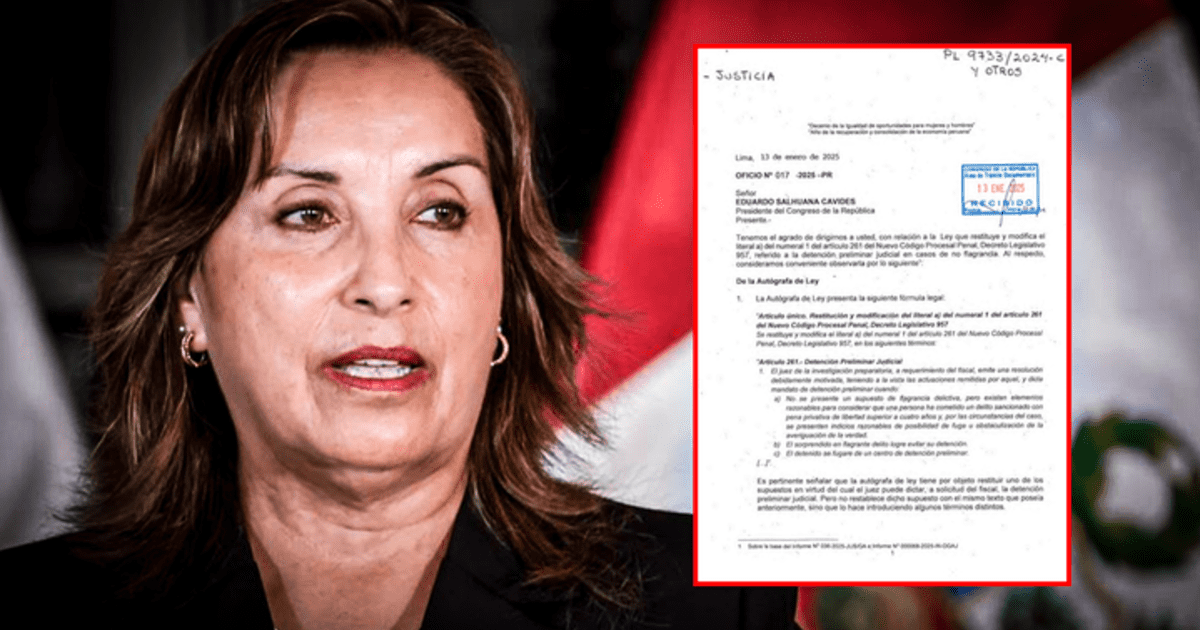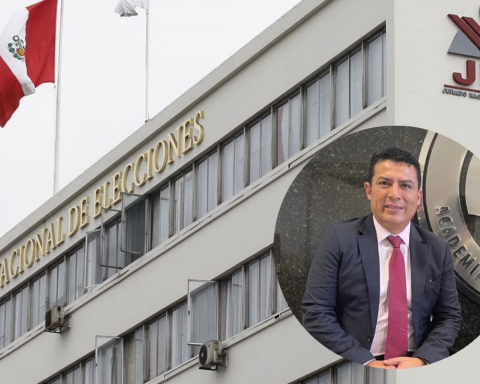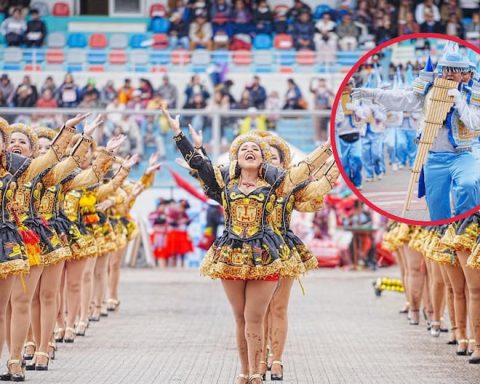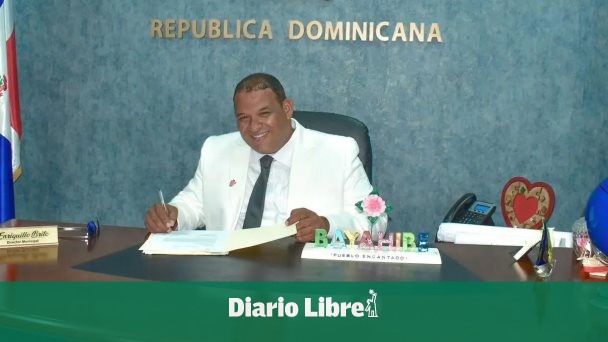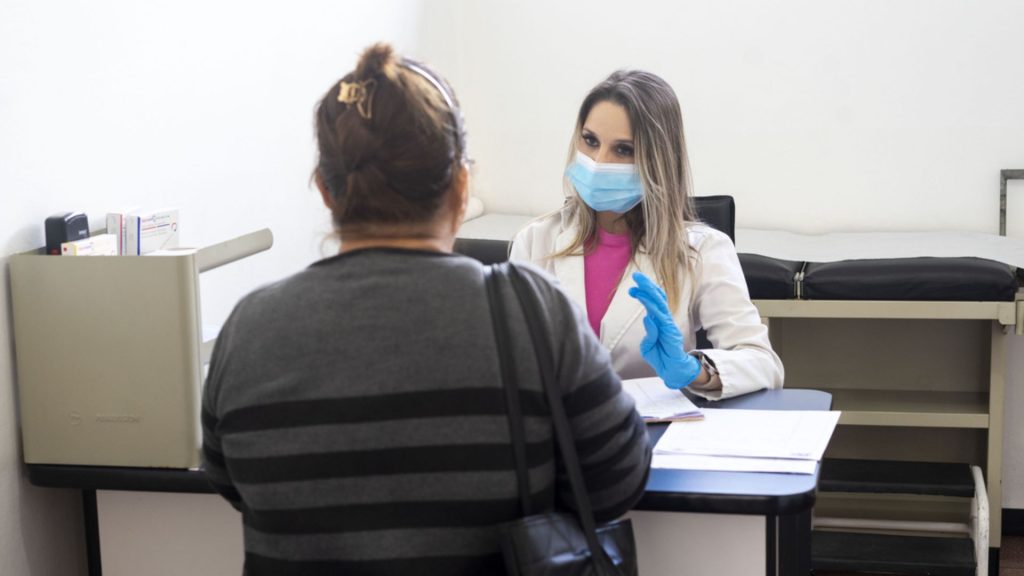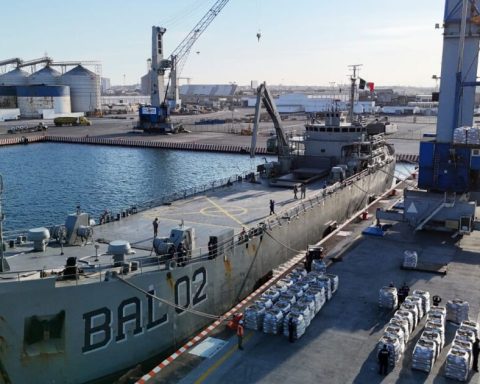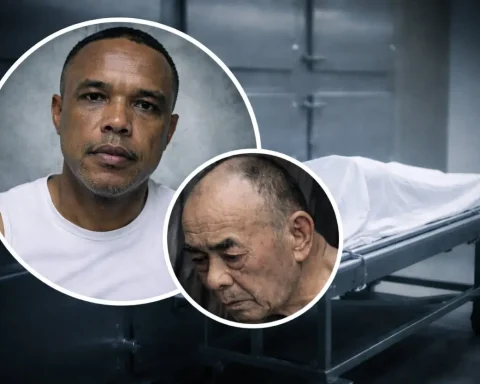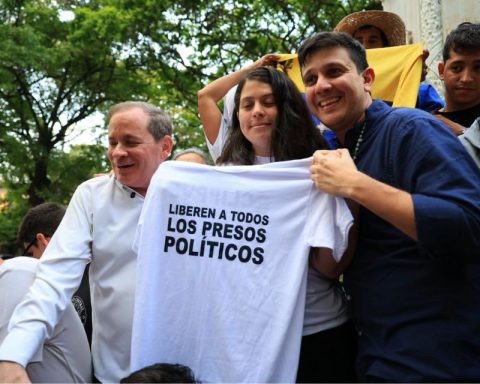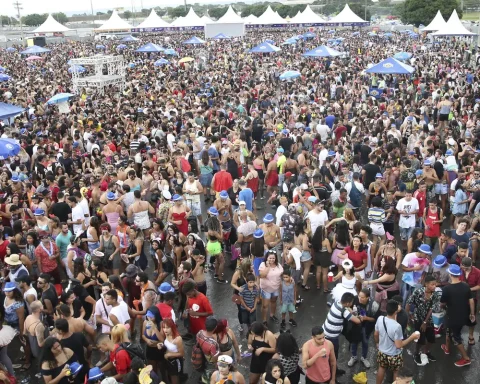The president Dina Boluarte proposed to Congress to establish that preliminary detention without flagrancy should only be used in strictly necessary situations, of violent crimes, the need to carry out a procedure in a certain period of time with the necessary participation of the investigated or prior to a request for preventive detention , in case of risk of escape or obstruction.
In this way, according to the government, “judicial abuse” of preliminary detention would be avoided and, at the same time, ensure criminal prosecution in the fight against crime, by observing the signature of the Law that restores preliminary judicial detention.
These approaches are part of the observations that the government presented to the Congress of the Republic against the signature of the law that sought to restore the preliminary detention annulled by Law 32181. The observations were presented on January 13, 2025 at 11:00 the night, in a nine-page document, which bears the signature of President Dina Boluarte and the president of the Council of Ministers, Gustavo Adrianzen Olaya.
By defining that preliminary detention only applies to violent crimes, the prosecutor’s office could not use this measure in investigations of corruption and white collar crimes, which are those that concern the government and the political forces that control the government and power. legislative. In cases like the Waykis in the shadows, the rolex, the chest, the prostitution network in Congress and Qali Warma, preliminary detention could not be requested or issued.
These observations would seek to prevent Congress from reestablishing the preliminary detention by promulgating the norm out of insistence, since it seems that the aim is to open a new and broad debate in parliament. In fact, the autograph with the observations has been passed to the justice commission, which would only be debated in the plenary session next March.
The government’s action on this issue shows President Dina Boluarte’s concern that the preliminary detention will be used in investigations of her family and collaborators for alleged acts of corruption. In May 2024, his brother Nicanor Boluarte and his then lawyer Mateo Castañeda were subject to preliminary detention, then preventive detention, which was later revoked.
The problem of preliminary detention
President of the Council of Ministers, Gustavo Adrianzén
The Government’s official letter indicates that the law’s signature “is intended to restore one of the assumptions under which the judge can dictate, at the request of the prosecutor, the preliminary judicial detentionbut it does not establish this assumption with the same text that it previously had, but rather it does so by introducing some different terms.”
This document indicates that the problem with preliminary judicial detention is that its regulations “have oscillated between ideas that do not grant it authenticity or autonomy with respect to preventive detention and that could influence an inadequate application.”
“For example, says the government, “that it is not requested to carry out necessary procedures in the consolidation of the investigation, but rather as a mechanism to investigate with the certainty that the person under investigation is deprived of liberty, but without justifying what relationship exists between said detention and the carrying out of proceedings; On the other hand, it could be used as a mechanism to pressure detainees and get some confession or acceptance of the effective collaboration procedure.
In this sense, he notes that “the modification proposed by the autograph does not critically evaluate the requirements themselves, that is, whether all of them are necessary as a whole or not, the moment in which detention can be requested, etc. Since it does not establish a substantial change with respect to the legal regulation that it seeks to restore, does not ensure its due application of the preliminary arrest in the absence of flagrante delicto and there is a risk of affecting the fundamental right to freedom.”
The requirements set by the government
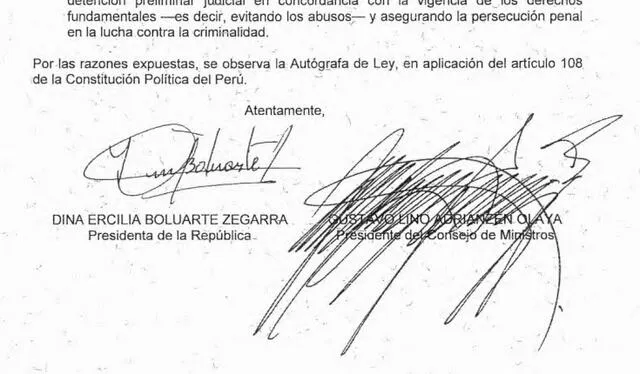
The government makes a series of observations to limit preliminary detention
Given this, the government proposes a series of ideas that should be considered when reestablishing preliminary detention:
- Application only to serious crimes of feminicide, hitman, conspiracy and the offer for the crime of hitman, kidnapping, rape, aggravated robbery, extortion, criminal organization, illicit drug trafficking and terrorism
- That preliminary detention without flagrante delicto be applied to crimes punishable by more than 8 years.
- That it be established that the judge who issues a preliminary detention will no longer resolve the request for preventive detention, as it would be contaminated and the principle of impartiality would be affected.
- Prohibit the elements for preliminary detention from being used again for preventive detention, but rather the latter be justified by new elements of conviction, so that there is a difference between both measures.
- Establish two types of preliminary detention. One, to avoid the escape of the investigated person and/or danger of obstruction prior to the preventive detention hearing. Two, given the need to have the physical presence of the investigated person in certain urgent investigative acts, in the temporal scope of the measure.
- That it be established that prosecutors and police personnel do not preliminarily expose detainees to the media, and any type of dissemination, disclosure and/or exhibition through photographs and videos is prohibited, to guarantee the presumption of innocence.
- Establish an additional requirement to issue a preliminary judicial detention that may be limited to a mere transcription of the prosecutor’s request.
It is also suggested that Congress “evaluate the possibility that, if the judge dictates a coercive measure omitting any motivation in this regard or dictates it with poor motivation, he could eventually incur administrative or criminal liability (crime of malfeasance).”
Nicanor Boluarte released
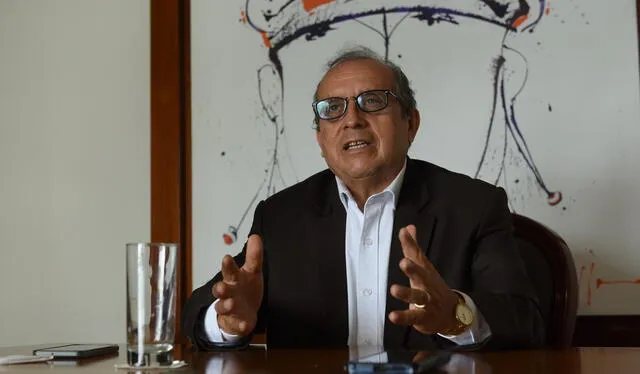
On January 14, one day after the government presented observations on the Law that sought to reestablish preliminary detention, the Fifth National Criminal Court of Appeals revoked the preventive detention that was issued against Nicanor Boluarte on November 17, 2024. The president’s brother remained underground for almost two months, without being located by the police.
Nicanor Boluarte is investigated for allegedly using the appointment of prefects and sub-prefects with the aim of creating a party structure that supports his sister’s regime. He denies it, but the prosecution has found evidence of irregular appointments, which would support this suspicion.
